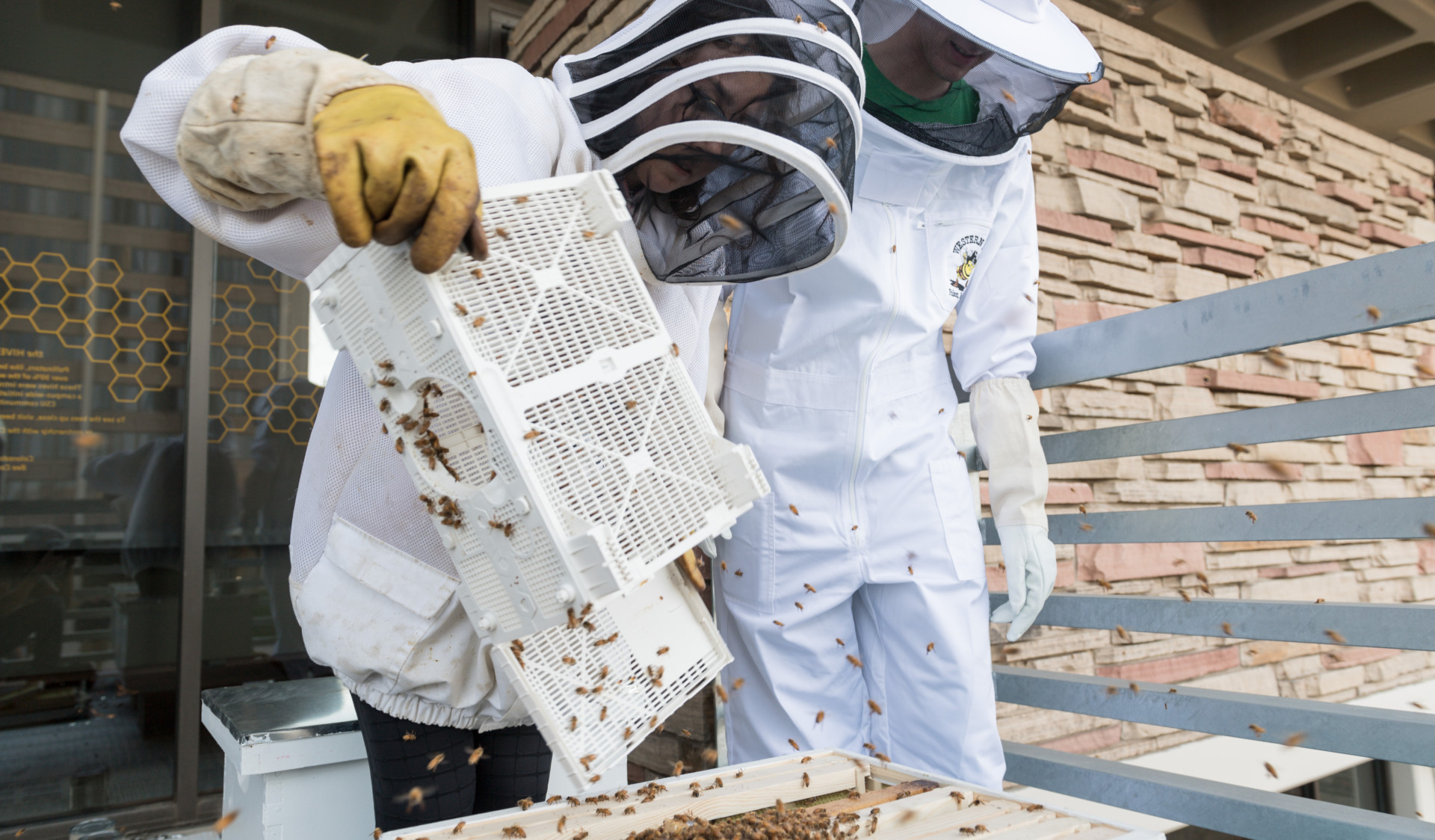About a year after Colorado State University’s first beehives were installed at the Durrell Center, CSU will add four more hives in May near the Horticulture Center, on the south side of campus.
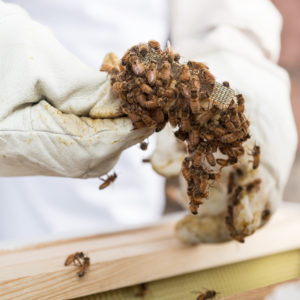
Freddie Haberecht, president of the CSU Apiculture Club, said the $5,147 granted to the club last fall by the Associated Students of Colorado State University is being used to install the four new hives and a pollinator garden on an outdoor plot at the Horticulture Center, near the southwest corner of Prospect Road and Centre Avenue.
“The outdoor plots at the Horticulture Center are a mix of research, education and experiential learning opportunities for our students,” said Mark Uchanski, associate professor of horticulture. “For each of the past four years, since the establishment of the Student Education Gardens, we have been trying to add at least one new feature. This year I welcome the bees.”
‘Great ambassadors’
It’s the latest development in ongoing efforts to make CSU a more pollinator-friendly campus. The university obtained Bee Campus USA certification in fall 2017, planted several pollinator gardens and created a Pollinator-Friendly Campus Committee, a subcommittee of the President’s Sustainability Commission.
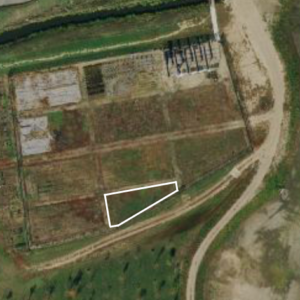
“Bees are great ambassadors for the environment,” Haberecht said. “They are such important pollinators.”
The first two beehives placed at a Durrell fire escape in spring 2018 did well last summer, producing honey that was actually used at campus events, he said. But it turned out to not be an ideal location for year-round beekeeping, since it doesn’t get full sun. The bees didn’t make it through the winter because it got too cold.
“Overwintering bees near a building or other nontraditional location brings its own challenges and learning opportunities for the students involved in it,” Uchanski said. “Beekeeping is not easy.”
Arathi Seshadri, adviser to the Apiculture Club and an assistant professor and pollinator Extension specialist in the Department of Soil and Crop Sciences, added that on average, nearly 50percent of bee colonies do not make it through the winter.
Bringing batches of bees
A shipment of six packages of European honey bees — 5,000 bees and a single queen in each box — is slated to arrive from California on May 11.
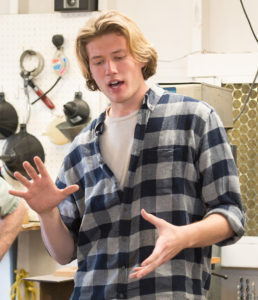
Four of the packages are headed for the new hives at the Horticulture Center, and two will be placed in the Durrell hives. Haberecht said that this time, the Durrell bees will be relocated over the winter, but the ones at the Horticulture Center should be fine, since that plot gets full sun year-round.
The plot for the new hives and accompanying pollinator garden, a former ropes course, comes with an eight-foot fence that will help keep it secure. But Haberecht said requests for tours of the 40-by-100-foot parcel are welcome. Work on adding signage and planting the pollinator garden will begin in early summer.
“So, hopefully, by the beginning of the next school year, it will look great,” Haberecht said.
He explained that the population of each hive will grow from 5,000 bees to 25,000 or more during the summer if the hives remain healthy. Since one bee hive requires about three acres of flowering land to thrive, bees in the new hives will travel well beyond their home pollinator garden, according to Haberecht. But the local pit stop will also benefit many native bees from outside the new hives; Colorado is home to 946 different bee species. Haberecht added that the Apiculture Club hopes to get the new pollinator garden certified by the Audubon Society.
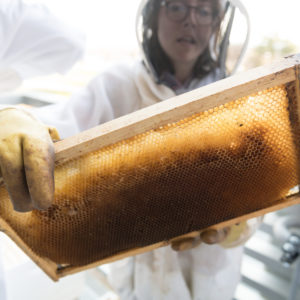
Veterinary care for bees
CSU’s Honey Bee Veterinary Medicine Club will also be an active participant with the new hives. Christina Geldert, a student in the Doctor of Veterinary Medicine Program who is founder and president of that group, will involve fellow vet med students in conducting check-ups on the health of the new bees.
“The hives will provide a teaching space for future veterinarians to learn about hive management and maintenance, to serve us in our future careers,” Geldert said. “Last summer, we had veterinary students working in the hives almost every week, and we hope to do the same this summer with the larger space and number of hives.”
For Haberecht, the new hives represent an exciting next step.
“We’ve learned a lot,” he said of the campus beekeeping efforts. “We’ve proven that this is possible.”
Those interested in getting involved with the Apiculture Club can email csuapiculture@gmail.com.
